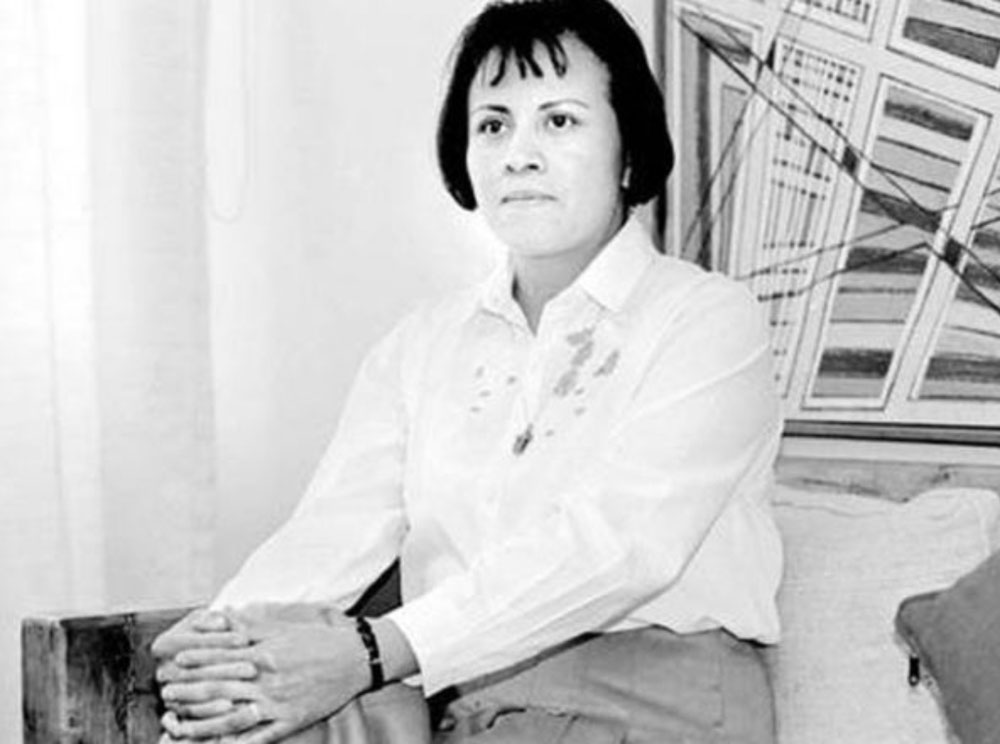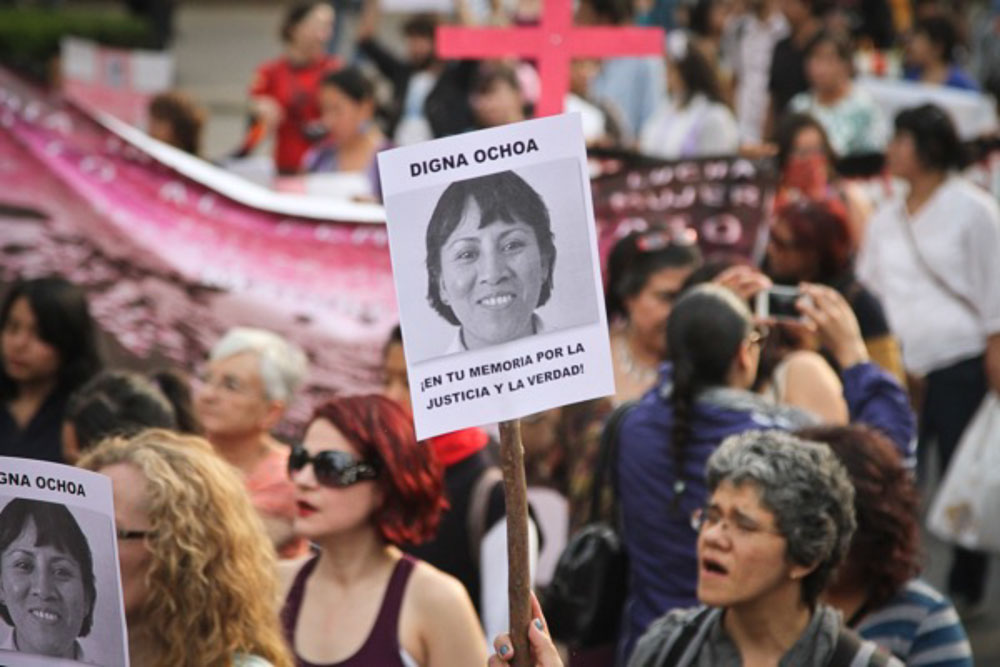by International Human Rights Clinic student Jasmine Gil and Professor Francisco Rivera

Mass for Ms. Ochoa in Mexico on 10/23/2001
Source: https://www.theguardian.com/pictures/image/0,8543,-10504283287,00.html
The International Human Rights Clinic at Santa Clara Law submitted an amicus curiae (friend of the court) brief (in Spanish) in a case before the Inter-American Court of Human Rights (“Court”), addressing the need to safeguard the rights of human rights defenders and the victims of gender-based violence. On January 19, 2022, the Court made public its judgment, in which it reiterated the duty of States to protect and recognize the importance of the role played by human rights defenders, whose work is essential for strengthening democracy and the rule of law.
Prof. Francisco Rivera and clinic students Jessie Smith, Jasmine Gill, Nas Yasin, and Marili Iturbe Guadarrama, submitted this brief to support the arguments of the petitioner and of the Center for Justice and International Law (CEJIL) in the case Relatives of Digna Ochoa and Placido v. Mexico. The brief argued that, according to international human rights law, Mexico failed to investigate the death of Ms. Ochoa effectively and diligently.

Ms. Digna Ochoa, a prominent women human rights defender and lawyer
Source: https://cejil.org/en/press-releases/the-assassination-of-a-human-rights-defender-in-mexico-still-unpunished/
Ms. Ochoa was a prominent Mexican women human rights defender and lawyer with the Centro de Derechos Humanos “Miguel Agustín Pro Juárez” and worked on several landmark cases in Mexico defending human rights. Throughout her career, Ms. Ochoa worked on high-profile cases which led to several death threats against her, harassment, and an attempted kidnapping. In 2001, Ms. Ochoa was found shot dead in her Mexico City law office. However, Mexico City prosecutors ruled her death as suicide. More than twenty years have passed since the violent death of Ms. Ochoa, and Mexico has yet to investigate effectively and diligently what happened and prosecute those responsible.
For the students at the Clinic, this brief was an opportunity to submit to the Court that women and girls who act to promote and protect human rights are especially susceptible to forms of violence and harassment and require heightened protections. Over two semesters, clinic students researched and drafted an amicus curiae brief that aimed to i) hold Mexico accountable for failing to carry out a proper investigation of the death of Digna Ochoa that is free from gender stereotypes and ii) reaffirm the obligation of States to protect human rights defenders, especially in the case of women defenders.
Specifically, the clinic’s brief argued that the State of Mexico failed to comply with relevant international human rights law standards that protect women and human rights defenders from violence, set out in the Inter-American Convention on the Prevention, Punishment, and Eradication of Violence against Women (Convention of Belém do Pará) as well as in Articles 8(1) and 25 of the American Convention on Human Rights. The brief argued that the murder of Ms. Ochoa highlights the lack of protection of human rights defenders in Mexico as dozens of activists, especially women human right defenders, are still threatened, attacked, and killed because of their job.

Activists on International Women’s Day in Mexico City
Source: https://upsidedownworld.org/archives/mexico/international-womens-day-in-mexico-time-for-mourning-not-celebration/
In its judgment (in Spanish) of November 25, 2021, the Court stressed most of the Clinic’s arguments while highlighting that women human rights defenders suffer additional obstacles due to their gender. The Court declared the international responsibility of Mexico for the serious irregularities committed in the investigation of the death of Ms. Ochoa finding Mexico in violation of articles 8, 11 and 25 of the American Convention on Human Rights, in relation to 1(1) of the same instrument and article 7(b) of the Convention of Belém do Pará, to the detriment of Mrs. Ochoa’s next of kin, as well as the violation of Article 11 of the American Convention in relation to Article 1(1) of the same instrument.
In conclusion, the Court explicitly recognized that in order to guarantee effective access to justice for women human rights defenders, States must guarantee (i) unrestricted and non-discriminatory access for women to justice by ensuring that women human rights defenders receive effective protection against harassment, threats, reprisals and violence; (ii) a justice system that meets international standards of competence, efficiency, independence, impartiality, integrity, and credibility, and ensures prompt and diligent investigation of acts of violence, as well as (iii) enforcement of mechanisms that guarantee that the rules of evidence, investigations and other legal evidentiary procedures are impartial and are not influenced by gender prejudices or stereotypes.
The Clinic’s brief (in Spanish) is here and the Court’s judgment (in Spanish) is here.